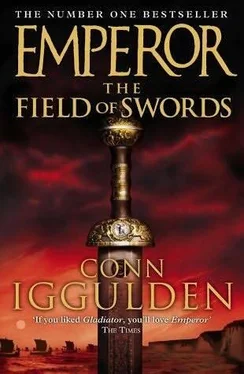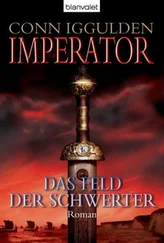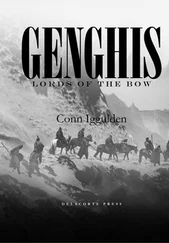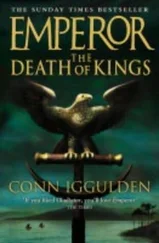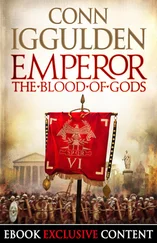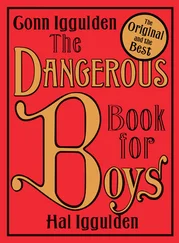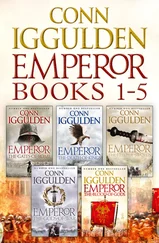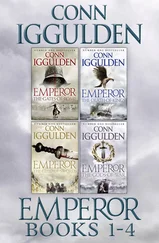Bibilus made a sound that could have been a reply, but Pompey went on over it.
“You have made a fair showing amongst the first classes, and may do better still before the end. See it through and who knows? Even if you are not successful, there is always a place for the old families in the Senate.”
Bibilus plastered a sick smile onto his face and Pompey patted his arm as he let him go. Suetonius turned away rather than try again and watched coldly as Bibilus took another three votes.
By noon, every result was greeted with cheers as the wine sellers sold their wares to the crowd. Julius felt able to unbend enough to drink a cup, but could not taste it. He exchanged inanities with Bibilus, but Senator Prandus remained aloof and only nodded stiffly when Julius congratulated him on his showing.
Suetonius had nothing like his father’s skill at hiding his emotions, and Julius felt his eyes on him constantly, wearing his nerves.
As the sun passed its zenith, Pompey called for awnings to shade them. A hundred centuries had voted and Julius was second and seventeen votes clear of Prandus. As things stood, Bibilus and Julius would take the seats, and the crowd began to show their interest more openly, cheering and jostling each other to observe the candidates. Julius watched as Suetonius drew a large red cloth from his toga and mopped his brow with it. It was a strangely flamboyant gesture and Julius smiled grimly, glancing to the west, where the Janiculum flag could be seen.
The Janiculum hill commanded a full view of the city and the land around it. A huge mast rose from a stone base at the highest point, and the men who watched for invasion never shifted their gaze. It was usually an easy duty, more suited to the ancient days when the city was in constant danger from outlying tribes and armies. This year, the Catiline conspiracy had brought home the continued need for the duty, and those who had won the task by lot were alert and watchful. There were six of them, four boys and two veterans from Pompey’s legion. They discussed the candidates as they ate a cold lunch, thoroughly enjoying the break from their normal duties. At sunset, they would complete their day with a note from a long horn and the solemn lowering of the flag.
They did not see the men creeping up the hill behind them until a pebble clicked against a rock and went skipping down the steep side below the crest. The boys turned to see what animal had disturbed them, and one cried out in warning at the sight of armed men scrambling up. There were seven of them: big, scarred raptores who showed their teeth as they caught sight of the small number of defenders.
Pompey’s men jumped to their feet, scattering food and knocking over a clay jug of water that darkened the dusty ground. Even as their blades came free, they were surrounded, but they knew their duty and the first of the raptores was punched flat as he came too close. The others surged in, snarling, and then another voice snapped through the air.
“Hold! Who moves, dies,” Brutus shouted. He was running toward them with a full twenty soldiers at his heels. Even if he had been alone, it could have been enough. There were few in Rome who would not have recognized the silver armor he wore, or the gold-hilted sword he had won.
The raptores froze. They were thieves and killers and nothing in their experience had prepared them to face the soldiers of their own city. It took only an instant for them to abandon the attempt on the flag and leap away in all directions down the steep slopes. A couple of them lost their footing and rolled, dropping their weapons in the panic. By the time Brutus arrived at the flag mast, he was panting lightly, and Pompey’s men saluted him, their faces flushed.
“It would be a shame to have the election stopped by a few thieves, wouldn’t it?” Brutus said, looking down at the dwindling figures.
“I’m sure Briny and I could have held them, sir,” one of Pompey’s men replied, “but these boys are good lads and no doubt we would have lost one or two.” The man paused as it occurred to him he was being less than gracious about the rescue. “We were glad to see you, sir. Are you letting them go?”
The legionary moved to the edge with Brutus, watching the progress of the raptores below. Brutus shook his head.
“I have a few riders at the bottom. They won’t reach the city.”
“Thank you, sir,” the soldier replied, smiling grimly. “They don’t deserve to.”
“Can you see which one of the candidates is losing at the moment?” Brutus asked, narrowing his eyes at the dark mass of citizens in the distance. He could make out where Julius was standing and saw a speck of red appear on one of the men at his side. He nodded to himself in satisfaction. Julius had guessed right.
Pompey’s soldier shrugged. “We can’t see much from here, sir. Do you think that red cloth was their signal?”
Brutus chuckled. “We’ll never be able to prove it, you know. It’s tempting to try to turn those thieves with a little gold, sending them against their master. More satisfying than just leaving their bodies out here, don’t you think?”
The soldier smiled stiffly. He knew his general was no friend of the man who stood at his shoulder, but the silver armor put him in awe. He could tell his children that he had talked to the greatest swordsman of Rome.
“Better by far, sir,” he said, “if they’ll do it.”
“Oh, I think they will. My riders can be very persuasive,” Brutus replied, looking at the flag snapping in the breeze above his head.
Suetonius glanced as casually as he could at the Janiculum flag. It was still flying! He bit his lower lip in irritation, wondering if he should take the red cloth from his toga one more time. Were they asleep? Or had they just taken his money and were sitting in some tavern drinking themselves blind? He thought he could make out figures moving on the dark crest and wondered if the men he had hired were unable to see his signal. He looked around guiltily and reached inside the soft cloth of his robe once more. At that moment, he saw Julius was smiling at him, the amused gaze seeming to know every thought in his head. Suetonius let his hand fall away to his side and stood stiffly, painfully aware of the flush that had started on his neck and cheeks.
Octavian lay in the long grass with his horse beside him, its great chest heaving in long, slow breaths.
They had trained the mounts for months to be able to hold the unnatural position, and now the extraordinarii only had to lay a hand on the soft muzzles to keep them still. They watched as the raptores came slipping and leaping down the Janiculum and Octavian grinned. Julius had been right that someone might try to lower the flag if the election turned against them. Though it was a simple ploy, the effects would have been devastating. The citizens of Rome would have streamed back to the city and the results up to that point declared void. Perhaps another month would pass before they assembled again, and many things could change in that time.
Octavian waited until the running men were close, then gave a low whistle, swinging his leg into the saddle as his horse rose. The rest of his twenty leapt up smoothly with him, gaining their saddles before their mounts were fully upright.
To the fleeing thieves, it seemed as if fully armed cavalry sprang out of the ground at them. The seven men panicked completely, either throwing themselves flat or raising their hands in instant surrender.
Octavian drew his sword, holding their eyes. Their leader watched him in resignation, turning his head to spit into the long grass.
“Come on, then. Get it over with,” he said.
Despite his apparent fatalism, the thief was fully aware of the positions of the riders and only relaxed when every avenue of retreat had been blocked. He had heard a man could outrun a horse over a short distance, but looking at the glossy mounts of the extraordinarii, it didn’t seem likely.
Читать дальше
Конец ознакомительного отрывка
Купить книгу
